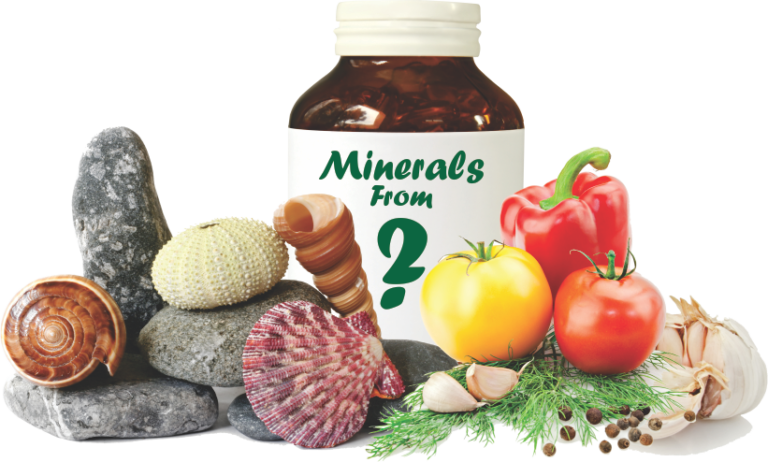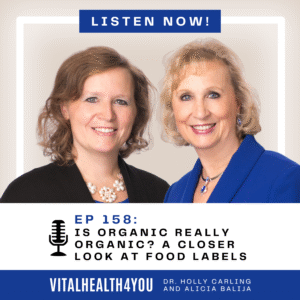Minerals, especially on a cellular level are vital to the functioning of the human body. Every organ and gland is activated by minerals. For instance, the thyroid needs iodine, the pancreas needs chromium and vanadium, and the stomach needs zinc. However, taking them in isolated form (taking a bottle of zinc) isn’t necessarily good.
Wherever minerals are found in nature, they are always found in groupings, never alone. There are synergistic qualities of minerals, meaning they need other minerals, in combination, in order to be effective. They are intended to be consumed in the proportions that nature provides, not in the mega doses we so wrongly presume we need. Synergy means that 1 + 1 equals 4 or 8 or even 16. That the combination is much more powerful than any one alone. It also means that smaller amounts in nature-perfect combinations work better than large amounts.
Minerals come from the soil. However, they have to be put into a form that we can assimilate. We can’t just grab a handful of dirt and chew on it and expect it to be absorbed. Yet many minerals found in supplement bottles are just that – they’re called “oxides”, and assimilation is poor at best. We need plants to uptake the minerals and convert them to a usable form. We eat the plants and get the minerals. This is one place in nature where we need a “middle man”. Green leafy vegetables and sea vegetables (such as kelp, nori (used on sushi rolls) and dulse) are the best sources of minerals.
Minerals are essential for proper functioning of the brain, the hormonal, immune, cardiovascular, renal, musculoskeletal and Integumentary (skin, hair, nails) systems. Although widely used to support the function of these systems, mostly from a symptom-chasing perspective, taking minerals in an isolated form (non-food form) can cause other problems. Minerals have antagonistic effects. For instance, taking an excess of zinc can antagonize, or suppress cadmium, potassium, chromium, sulfur, manganese, iron, copper and phosphorus. Taking too much magnesium can suppress manganese, calcium, sodium, potassium, copper and phosphorus. Minerals are naturally found in the perfect proportion for health. Eating them in their perfect form, as foods, is essential.
Mineral supplements should be from foods. The labels should read something like “kelp, alfalfa, spinach, kale”, etc. They should not include the words “oxide” or “carbonate” or anything that doesn’t sound like a food.
In our desperate efforts to restore health, we reach for mega-doses of anything to make us feel better. Although initially you may feel better, as the body is depleted of other minerals as a result of inappropriate intake of minerals, we simply reach for more. Not always a good idea! Always take minerals the way nature intended – through food sources!
© 2010 Holly A. Carling, O.M.D., L.Ac., Ph.D.







